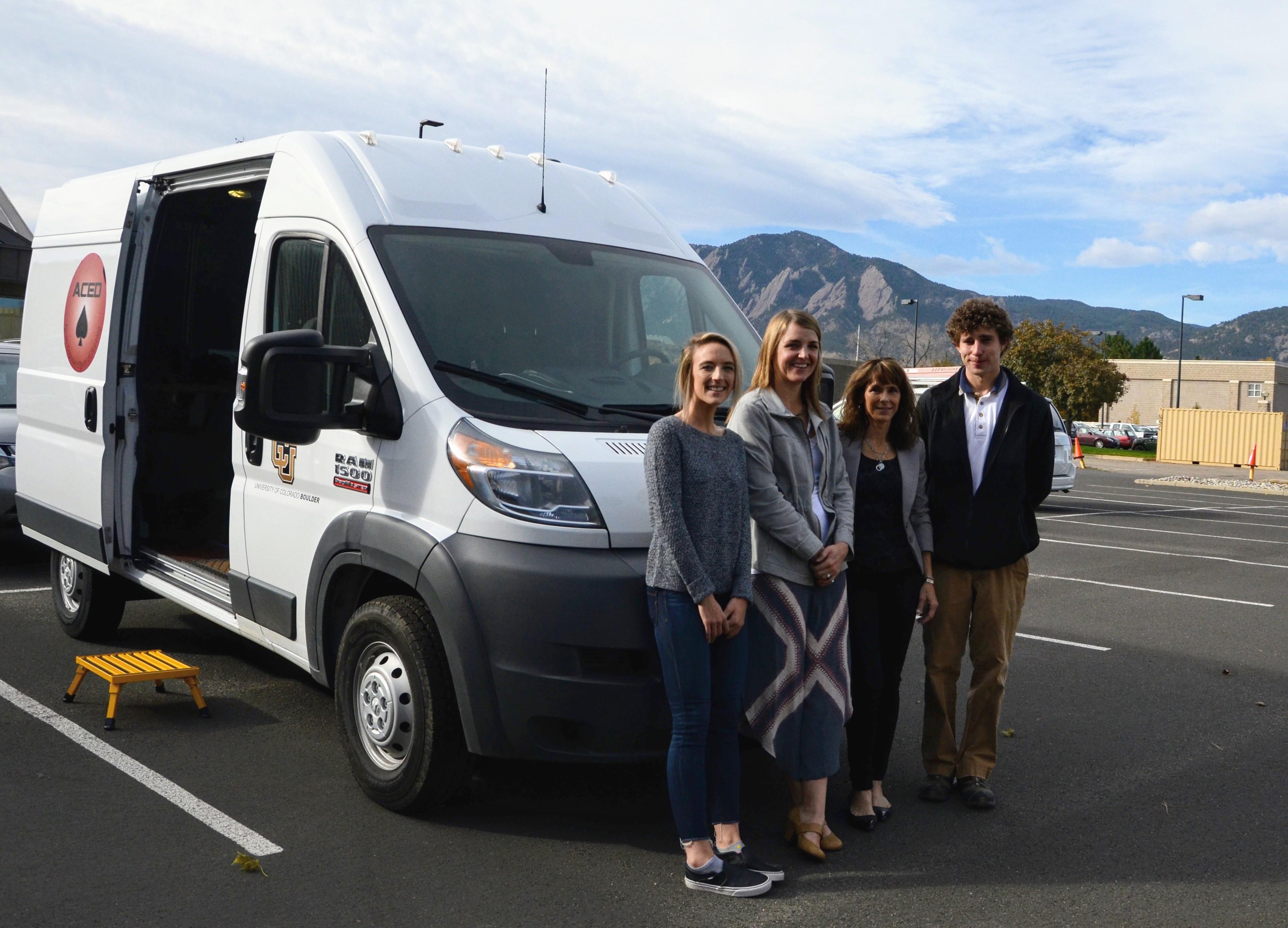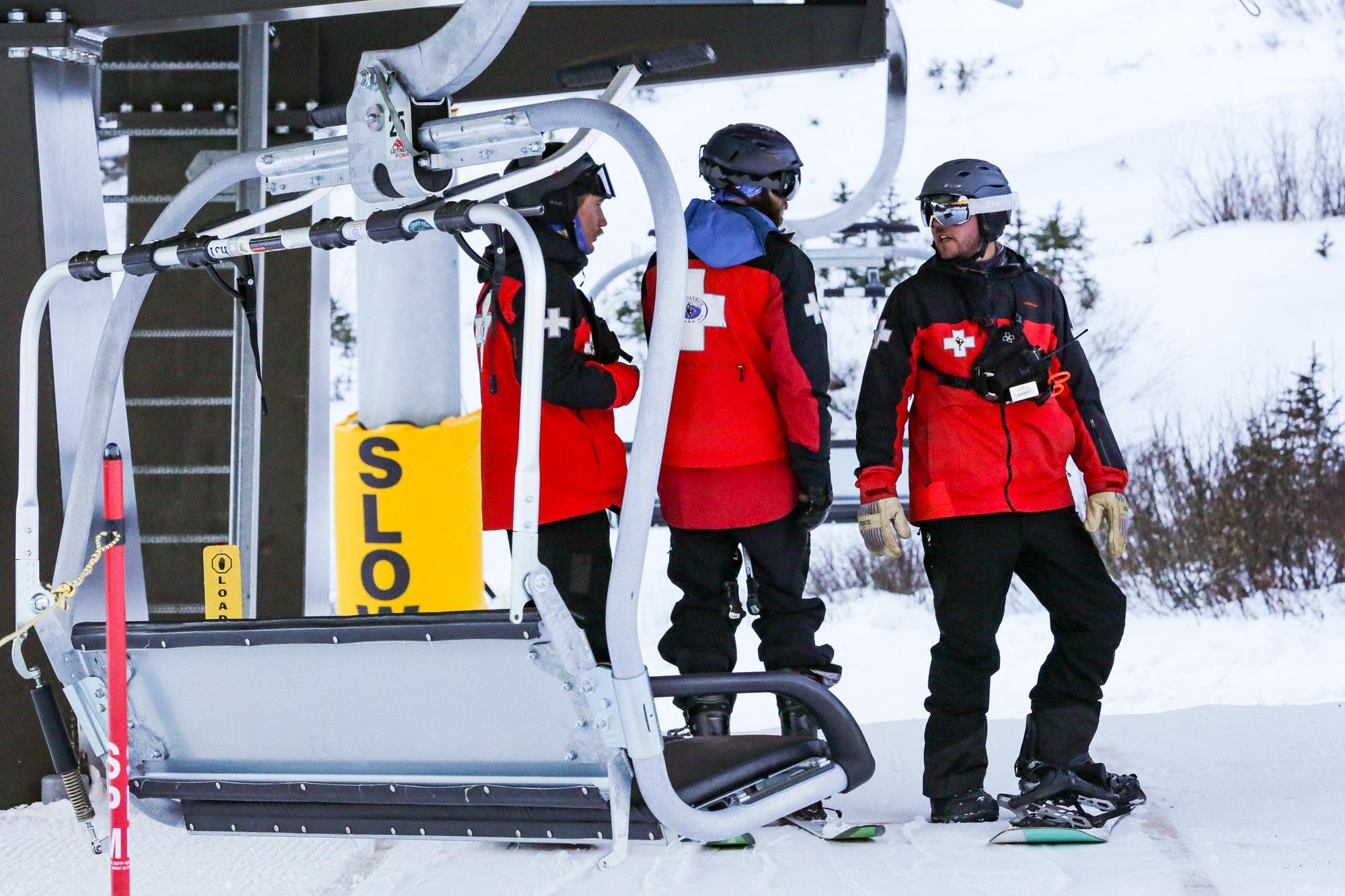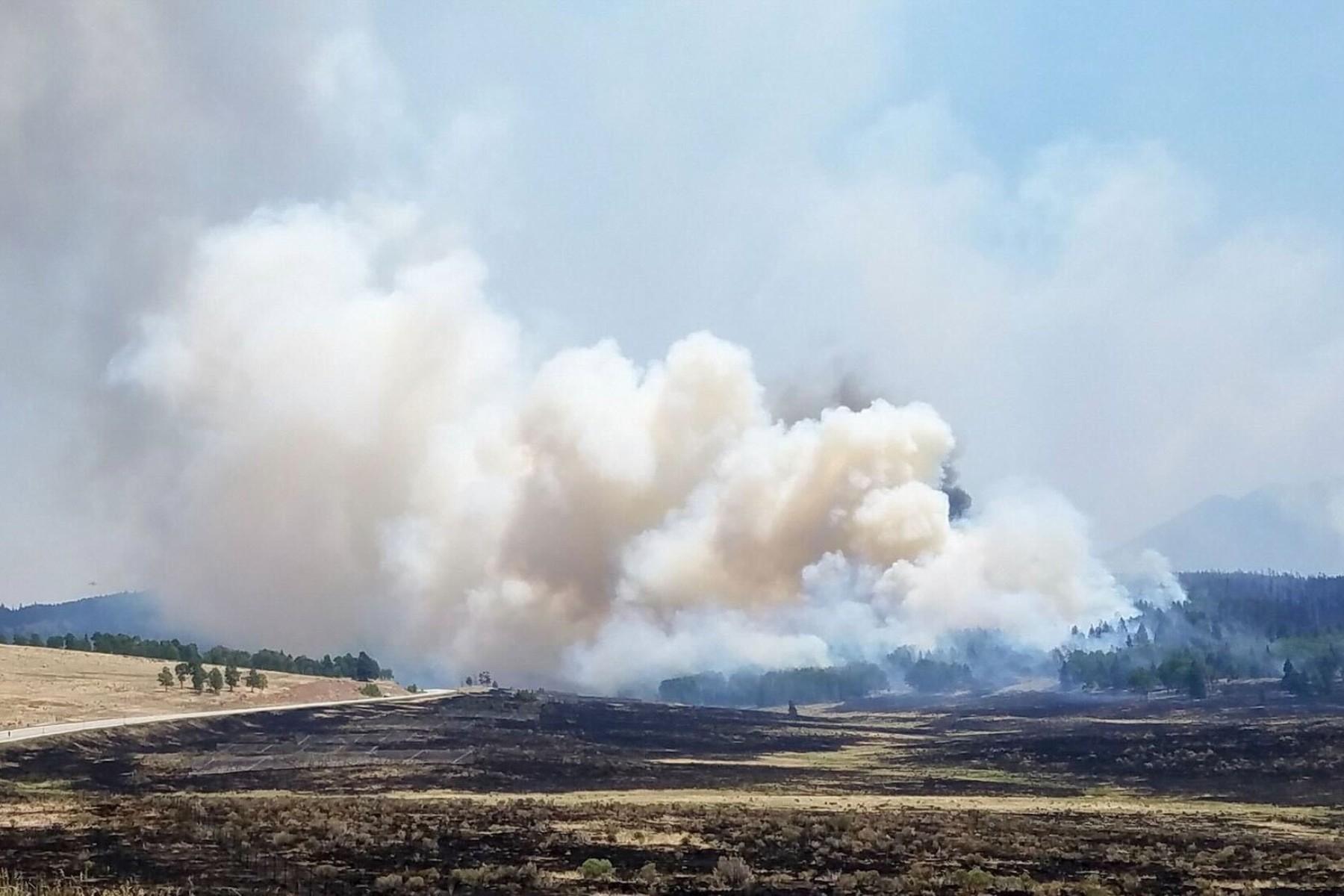

Keep your eyes out for a Dodge Sprinter van around Boulder. What looks like a nondescript cargo van is actually a cutting-edge marijuana research lab.
It’s nicknamed the Mystery Machine or the CannaVan, and researchers are using the mobile lab to drive around federal drug laws.
That’s because there's just one source of marijuana for clinical research in the United States. It's a 12-acre cannabis farm at the University of Mississippi run by the National Institute on Drug Abuse. Researchers have to battle through piles of paperwork to request the drug.
“Pass through all those hoops and your government marijuana arrives in the mail,” says Cinnamon Bidwell, a researcher at the University of Colorado Change Lab. The interdisciplinary lab studies brain science, health and addiction.
The problem? Government pot is weak stuff.
Bidwell found the average THC potency is between 5 or 6 percent — THC being the main psychoactive compound in cannabis.
“Now your average THC potency in Colorado is something closer to 16.5 percent,” Bidwell says, citing a study she published this year on recreational marijuana in metro Denver.
After legalization, Kent Hutchison, another Change Lab researcher, looked for ways to study the more potent marijuana on the Colorado market.
“The first thing we thought is, ‘We will bring people into our lab on campus and have them use cannabis and study the effects.” But the request hit a snag with the CU Boulder legal team.
The university receives over $300 million a year in federal grants. If scientists didn't follow the letter of federal law, the legal team worried the government could take away that money. It meant scientists couldn't buy, dose, or even touch cannabis from a Colorado pot shop for their work.
Hutchison went back and forth with the lawyers. “What we came up with is we can't bring people to the lab and have them use cannabis, but we can bring the lab to the people,” he says.
Enter the CannaVan.
Here's how the van works. Scientists assign study participants, who are all regular marijuana users, a certain cannabis product. They buy it on their own. When the van shows up, they enter sober and run through a battery of tests. Then they go back into their homes, get as high as they want, and return to the van for the same tests.
The test battery starts with a breathalyzer to make sure alcohol won't interfere. There's a blood draw to measure THC blood levels. Then, participants memorize a list grocery items, take some cognitive tests on an iPad, and do a balance test and driving simulation. They then try to recall that grocery list from earlier.
Subjects earn $150 for their participation.
Bidwell says the van has a clear advantage in the current legal landscape: “We're able to add the elements of laboratory control that we would like to have in place without dosing them or providing the products.” She can also observe impairment right after use.
Hutchison, the other CannaVan researcher, says there are also drawbacks.
“We don't control the dose,” he says. “We don't control how they take it. That means there's a lot of variability in the data.”
While it’s imperfect, newer products like marijuana concentrates have made their research more urgent.
If traditional marijuana flower is beer, concentrates are strong vodka. Certain high-end concentrates, like shatter, can have a THC potency of around 90 percent. The products are growing in popularity. Sales of concentrates nearly tripled between 2014 and 2016, according to cannabis data company BDS Analytics.
Colorado is funding a CannaVan study of concentrate users. A second van study looks at the effects of marijuana flower. That second study is paid for by NIDA — the same organization that provides low-potency marijuana to researchers.
Hutchison says federal authorities might have been unsure of the methods at first, but they've come around.
“There’s some sympathy on the part of reviewers for this situation where we desperately need the data and there’s no good way to do it other than the way we’ve identified.
In other words, even the feds are climbing aboard the CannaVan.









